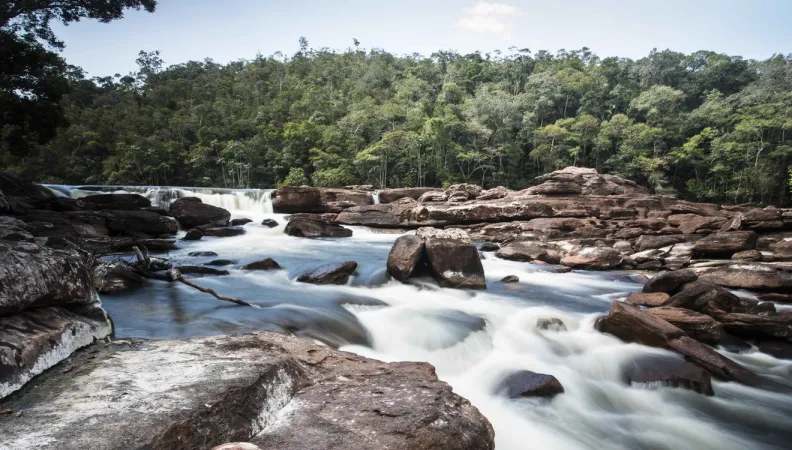Share the page
AFD Flagship Facility helps More Countries Cope with Climate Change
Published on

AFD’s facility that supports countries around the world deal with the fallout from climate change is getting a boost. Additional funding will help provide support to eight more countries, from the Dominican Republic in Latin America, to Gabon in West Africa, to the Philippines. The 2050 Trajectory Facility will help some countries reduce emissions and make the transitions necessary to become more resilient to climate change.
With an additional €10 million, the 2050 Facility is getting a boost. Created five years ago, AFD Group’s flagship grant tool is now allocating a total of €40 million to more than two-dozen countries.
In addition to the 18 countries identified for this support, eight more have joined, including Angola, Gabon, Papua New Guinea, the Philippines, Uzbekistan, the Dominican Republic, Rwanda and Serbia.
The fund not only helps countries deal with climate change and extreme weather events, it also supports efforts to reduce greenhouse gas emissions to rein in climate change. It provides support to countries that are among the biggest greenhouse gas emitters as well as those that are most vulnerable to climate change, by drafting and implementing low-carbon, resilient development strategies for 2050, as laid out in the Paris Climate Agreement.
The accord was approved in 2015 by 193 countries and the European Union, and has since been followed by support programs such as this to help usher in transitions of unprecedented scope and complexity, touching on everything from infrastructure and energy to transportation.
Though the 26 beneficiaries around the world are at different stages of preparedness for climate change, three core principles will apply, allowing each country to adapt in its own way.
The guiding principles are:
- Engaging stakeholders through capacity-building and awareness-raising
- Developing plans to achieve their aims, through the development or revision of long-term strategies
- Operationalizing climate trajectories, through support for public policy reform and the drafting of multi-sector actions and investment plans
Find out more about the second phase of the 2050 Facility
A holistic approach to climate change
Earlier this year a capitalization study was completed to identify the best and worst practices employed by the Facility to improve its tools and governance, and to spread awareness.
“It has helped make the climate central to national planning decisions,” says Tawanna Lima, Project Manager of the 2050 Facility at AFD. “It involves not only the ministry involved, which is generally the Ministry of the Environment, but also other ministries, in particular those for the Economy, Finance and Planning.” This allows countries to adopt a wider-ranging, holistic approach to transitions that affect every sector.
Watch the video: Nature-based solutions to restore ecological heritage in China
Supporting ecological transitions from China to Colombia
The 2050 Facility has led to the development of more than fifty projects in some thirty countries. China, the world’s biggest greenhouse gas emitter, is one of them. In 2019, AFD signed a partnership to work with the International Energy Agency (IEA) on its clean energy transition program in China.
AFD Group has also been supporting Colombia to develop and implement its long-term E2050 strategy via three successive support grants between 2020 and 2022, totaling €1.7 million. This support has been used to explore the risks and opportunities of a low-carbon transition for the Colombian economy and financial system.
Expertise France is working with the 2050 strategy coordination team to help implement Colombia’s E2050 strategy to reduce greenhouse gas emissions and strengthen the country’s climate resilience.
“Colombia represents one of the 2050 Facility’s major success stories thanks to a participatory approach and the involvement of our partners from the Inter-American Development Bank (IDB) and the Expertise France project team,” says Tawanna Lima.
The work carried out by AFD Group bolsters the government’s climate legislation of December 2021, which set the deadline of reaching carbon neutrality by 2050, beginning with the adoption of sector-specific “carbon budgets” for the period 2020 to 2030.
